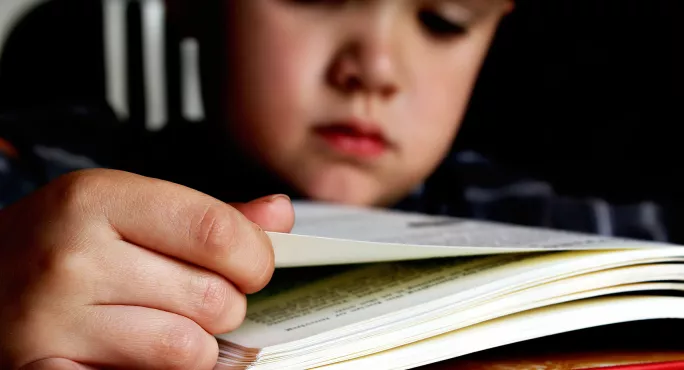School readiness: ‘alarming’ gap in parent-teacher attitudes
Share
School readiness: ‘alarming’ gap in parent-teacher attitudes
Less than half of parents think children should know how to use books correctly before starting primary school, a poll shows.
In the survey for early years charity Kindred2, 44 per cent of parents said they thought children should know how to use books correctly - turning pages rather than “tapping or swiping” like on a device - by Reception.
Primary school staff taking part in the poll reported that 28 per cent of children who started Reception in 2024 “incorrectly used books” and one in four were not toilet trained.
Only three-quarters of parents polled said they thought children should be toilet trained before joining Reception.
Headteachers’ leaders warned that the survey findings point to an “alarming disconnect” between some parents and schools about what school readiness means.
Reception pupils ‘not school-ready’
The poll questioned more than 1,000 staff in primary schools and 1,000 parents of Reception-age children in England and Wales in October and November last year. Teachers reported that children were entering primary school with delays in basic motor skills and a lack of core strength.
Teachers participating in focus groups expressed concerns about children not meeting a range of their developmental milestones.
One primary school deputy head in the North West said: “We’ve had a lot of delayed walkers. Their movements are quite clumsy, dropping things, unable to climb a staircase.”
A teacher in the same region said there were children in Reception who “physically cannot sit on the carpet” because they lack core strength.
Last month the prime minister set out his ambition for 75 per cent of children to have reached a good level of development by the time they start school.
- Child development: How do we fix the problem of school readiness?
- Starting school: Pupils less school-ready this year, say teachers
- Policy: Starmer promises record number of ‘ready to learn’ five-year-olds
School staff in the survey, asked to give reasons why children were not turning up school-ready, highlighted children spending too much time on electronic devices (cited by 54 per cent of teachers) and parents not reading enough to their children (52 per cent).
Two in five staff said “less time spent in early childhood education due to lockdown restrictions” was a key factor in school readiness.
But one senior leader in the East Midlands said: “There’s only so long you can blame Covid for that. I’m sorry but a lot of it comes down to parenting as well.”
Felicity Gillespie, director of Kindred2, said: “We welcome the government’s pledge to get more children ‘school ready’ but our report suggests that too many parents are failing to support the development of their children, in spite of - we know - having their best interests at heart.
“We need to destigmatise how we talk about parenting in these critical years of development and, as a nation, begin to grasp that we’re all learners from birth, and that these early years have a massive impact on all our futures.
“The role of parents and carers as their child’s first educator really is crucial to their later life chances and the success of our society and economy.
“Our latest annual report highlights that the problems are both significant and stubborn.”
‘Alarming disconnect’
Tiffnie Harris, primary specialist at the Association of School and College Leaders, said: “This study finds an alarming disconnect between some parents and schools about what school readiness actually means.
“What we suspect lies behind this finding is that many families are themselves struggling with a range of economic and social pressures and there is a dearth of support for them.”
She said the answer was an intense focus on high-quality early years education “not just in terms of free childcare, but sufficient funding rates to support this essential provision”.
Paul Whiteman, general secretary of the NAHT school leaders’ union, said: “There is perhaps more that could be done to help all parents ensure their children are ready to thrive when starting school and are able to access support if and when they need it.”
He said the disruption caused by the pandemic had undoubtedly had an impact on the development of some young children.
“High-quality early years education is really important and is vital in helping to narrow the gap between children from disadvantaged backgrounds and their peers,” Mr Whiteman added.
For the latest education news and analysis delivered every weekday morning, sign up for the Tes Daily newsletter




